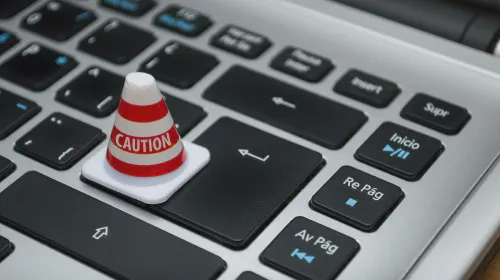8 Ways Blockchain Supports Sustainability
Salomon Kisters
Jun 28, 2022This post may contain affiliate links. If you use these links to buy something we may earn a commission. Thanks!
While the benefits of blockchain are plentiful, the question is, how does it support sustainability?
Here are some ways blockchain can help: These include ending hunger and poverty, promoting health and wellbeing, and advancing quality education. In fact, some companies are already using blockchain in these sustainable ways to bring a positive change to society.
Read on to learn how blockchain can support sustainability.
Reducing Poverty
In recent years, the rise of blockchain technology has accelerated.
Working behind most digital currencies, blockchain is much more than a simple payment system. Instead of a traditional bank, a blockchain acts as an encrypted database in which transactions are permanently recorded in a public ledger.
Blockchain technology can help the world’s poorest people acquire their first real assets. Through a decentralized registry, blockchain technology will protect the right of property owners against fraud and ensure proper ownership transfer after a sale.
Blockchain land registries can also help increase access to banking facilities, allowing the poorest to prove their existence. This technology is already being tested in various countries such as Bermuda, Brazil, Georgia, and Ghana.
A start-up in the United Kingdom has created a blockchain for this purpose. This blockchain will let users authenticate themselves through voice and facial recognition.
This authentication process takes less than 30 seconds and can be completed using a simple smartphone. The blockchain will help these farmers invest in businesses and achieve economic sustainability.
The technology will make land titles more traceable, and this will increase their income. In addition to reducing poverty, blockchain will allow for a global record of ownership.
Ending Hunger with Blockchain
Blockchain technology has many practical applications, from reducing business costs and risk to ensuring more accountability and efficiency.
In the same way, the implementation of decentralized blockchain technologies could have a significant impact on hunger relief.
The blockchain is a potential solution to ending hunger in the world, as it can help fight food waste and unequal distribution of wealth. Blockchain can also be used to combat hoarding in the food supply chain.
In a food-processing system, blockchain records the number of raw materials sold to agro companies and then channeled to distributors.
This transparency can help reduce the cost and time of purchasing food for the poor and halt the production or wastage of surplus food. Using blockchain technology, governments and agro companies can make the entire process more transparent and efficient.
Promote Health and Wellbeing through Blockchain
Can blockchain also promote health, happiness, and wellbeing in the world?
An example of a blockchain-based health and wellness platform is Clinicoin. Unlike other “get paid to workout” programs, this platform focuses on promoting collaboration between medical organizations and their users.
It provides a secure HIPAA-compliant channel for health information exchange while connecting members to a community of users interested in maintaining their health.
It is also a platform for medical care providers to reward their patients for practicing healthy habits.
Developing a blockchain-based health app will empower patients and healthcare providers by improving data management, real-time integration, and real-time analysis.
Blockchain-based smart contracts will focus on patient outcomes and reward users for promoting healthy behaviors.
By enabling blockchain-based health apps, healthcare providers will likewise receive payments based on the quality of care they provide. This will lead to new opportunities emerging in AI applications.
The OSF innovation is one such project that will use blockchain to promote health and wellbeing.
While blockchain can improve the modern healthcare sector in many ways, it is not yet ready for mainstream adoption. Blockchain technology allows for trustless collaboration and secure, immutable information.
The HHS is working to keep pace with this field and identify areas where it can support health-related efforts. It is also mapping the blockchain ecosystem and supporting a consortium for dialogue and collaboration.
Furthermore, it will support blockchain research to identify opportunities for improved health and wellbeing.
Quality Education through Blockchain
Blockchain technology can be used in many ways to improve the delivery of quality education. This technology can provide security, integrity, anonymity, and encryption for all parties involved.
In addition, it can promote increased transaction rates for educational institutions and students. It can be used to reward students and teachers by creating a decentralized, secure system of records.
To create a quality education system through blockchain technology, however, educators must develop pertinent educational infrastructure first.
This can include MOOCs, which allow people with less knowledge to interact with more educated individuals in an effort to learn from each other.
Among the many advantages of blockchain technology for educational institutions is its immutability. Blockchain ensures that no one can change or alter a student’s past educational certifications and achievements.
Paper records can easily be altered, but a blockchain is impossible to alter. Furthermore, the blockchain encrypts data before storing it.
Because blockchain cannot be altered, quality education through blockchain can increase educational institutions’ transparency and sustainability. In addition, it can reduce the fear of plagiarism.
Gender Equality through Blockchain
The invention of blockchain technology has led to considerable excitement around the rise and fall of digital currencies. But it is not just financial services that one stands to benefit from blockchain.
Development experts are leveraging blockchain technology to achieve and maintain gender equality in all facets of our personal and professional lives.
Blockchain solutions can increase access to finance for women, create new forms of identification, and improve their overall financial management.
Traditionally, professional sectors such as computer science and IT favor men, making them largely male domains.
While some activist groups are actively working to change that, many women and underrepresented minorities are also becoming involved in blockchain projects.
Yael Rozencwajg, the founder of Blockchain Israel, advocates sustainable initiatives and climate change. She has personally observed the underrepresentation of women in the blockchain industry and is actively working to reverse the situation.
Blockchain promotes clean water and sanitation
Blockchain has the potential to improve water and sanitation management in the world. Water is a physically scarce resource.
Due to the complexity of water management regulations and the rising demand for water, current methods of water management face significant challenges.
The implementation of blockchain applications can help consolidate the existing water management system and integrate automated work processes. Blockchain will further strengthen trust, transparency, and accountability of water and sanitation systems.
With access to better financial services, blockchain may encourage more communities to promote clean water and sanitation. By rewarding conservation programs based on performance, communities may become more likely to adopt sustainable water management practices.
Moreover, these actions may result in a reduction of water pollution, further improving access to clean water.
Affordable energy with blockchain
Using distributed ledger technology, or blockchain, to manage the production of renewable energy is a promising way to boost efficiency and cut costs.
Blockchain-based systems can facilitate increased coordination between utility companies and customers. For example, NREL researchers are working to develop software that could enable consumers to control their electricity generation and divert it back to the grid.
Because electricity feeders are designed to handle one-way flows, blockchain technology can help solve this issue.
The technology facilitates distributed energy production. The blockchain network enables the market to allocate production and use to different types of energy alternatives.
Companies like GRC are using blockchain technology to provide immersion cooling to convert biomass into electricity. The company is focusing on scaling the technology to larger projects.
The implementation has already begun in the Port of Rotterdam, which contributes about 35 percent of the Netherlands’ carbon emissions. It is also working on shore power.
Currently, docked ships need variable power to operate their equipment. Traditionally, these ships have used diesel generators, which are highly polluting and produce fine dust.
Sustainable energy sources leveraged by blockchains can help minimize these issues and help in the development of more sustainable projects in the future.
Economic growth with blockchain
Using blockchain to track transactions between countries and people is a way to address three of the most pressing questions related to sustainable development.
Inclusion, trust, and multilateralism are critical issues, and these will continue to be addressed for decades to come.
To achieve this, governments, civil society, academia, and non-governmental organizations must find new ways to address these challenges and harness the power of blockchain to promote inclusive growth.
This way, blockchain can support sustainable development and the United Nations’ SDGs.
The Bottom Line
The blockchain is a distributed ledger that supports a circular economy by improving traceability and transparency.
Furthermore, it assists businesses in lowering their carbon footprints through improved carbon emission trading and accelerated clean energy trading.
What’s more, blockchain enables governments to more accurately predict carbon tax rates for each firm, reducing the environmental impact. These advantages are critical for a sustainable society.
Stay informed with the latest insights in Crypto, Blockchain, and Cyber-Security! Subscribe to our newsletter now to receive exclusive updates, expert analyses, and current developments directly to your inbox. Don't miss the opportunity to expand your knowledge and stay up-to-date.
Love what you're reading? Subscribe for top stories in Crypto, Blockchain, and Cyber-Security. Stay informed with exclusive updates.
Please note that the Content may have been generated with the Help of AI. The editorial content of OriginStamp AG does not constitute a recommendation for investment or purchase advice. In principle, an investment can also lead to a total loss. Therefore, please seek advice before making an investment decision.

How Blockchain Supports Data Privacy
In this article, we will discover how blockchain technology supports data privacy and integrity in different ways.

Blockchain Security Audit: Definition, Process, and Importance
A blockchain security audit is a secure technology that supports high-value transactions taking place on a blockchain. The process involves sophisticated code analysis to identify and eliminate vulnerabilities in applications.

3 Ways Blockchain Supports Artificial Intelligence
Almost everyone has heard about artificial intelligence. But how does it connect to blockchain technology?
Protect your documents
Your gateway to unforgeable data. Imprint the authenticity of your information with our blockchain timestamp